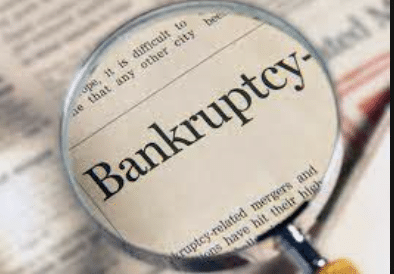
Does Bankruptcy Clear Tax Debt
Individuals and businesses facing financial peril want to know, does bankruptcy clear tax debt in California? Those considering bankruptcy are typically dealing with severe financial stress which resulted from distinct types of debt and financial burdens. Will filing for bankruptcy put you back on the right financial track?
Is Bankruptcy the Best Option?
Opting to file bankruptcy requires understanding and acknowledging the types and amount of outstanding debt. For federal taxes owed, filing for bankruptcy may offer relief, including the delay or stoppage of the IRS’s continuing collection efforts, and in some cases, filing may clear some tax debts entirely.
As part of the decision process, it is crucial to speak with an experienced tax/bankruptcy attorney. At RJS LAW, our professionals work with clients to fully discuss and provide understanding of the process and ramifications of bankruptcy, including a review of all financial issues and whether bankruptcy is the right choice. If bankruptcy is not the best option our team will help taxpayers explore other options to relieve tax debt and other financial obligations.
Can Tax Debts Be Erased Through Bankruptcy?
Bankruptcy is a legal process that enables the debtor to eliminate or reduce various personal or business debts, including medical debt, most credit card debt, as well as certain types of federal and California tax debt. Whether tax obligations will be cleared with a bankruptcy depends on multiple factors and the particular facts of the filer’s case. There are essential elements to consider in determining how bankruptcy may affect tax debt.
What Type of Bankruptcy Will Be Filed?
The type of bankruptcy filed will have a considerable influence on whether any of the tax debt will be discharged. Under the two major types of bankruptcy, Chapter 7 and Chapter 13, Chapter 7 allows for the possibility of clearing tax debts without a repayment plan, assuming one meets the required qualifications. A Chapter 13 bankruptcy allows a personal or business reorganization of debts through the implementation of a payment plan which pays priority tax debt in full during the life of the plan. This means that if certain criteria are met, a non-priority tax debt may be discharged in a Chapter 13. Understanding whether a tax debt is entitled to priority under the bankruptcy code is critical to the outcome.
Type of Tax Debt
What type of tax debt is dischargeable through bankruptcy? Typically, only income tax debts can be dischargeable in bankruptcy. A tax debt owed for payroll taxes, FICA (Social Security) taxes, and trust fund taxes are not dischargeable through any type of bankruptcy proceeding, including Chapter 7. A narrow exception to this may apply which allows a sales tax debt to be discharged in bankruptcy if the business has been formally terminated several years prior to the bankruptcy filing and certain other requirements are met.
Was Fraud Involved
If a willfully filed fraudulent or misleading tax return was filed or a taxpayer willfully avoided filing required supplemental forms such as an FBAR, used to declare foreign-based earnings and income, that person will not be eligible for debt reduction or elimination through bankruptcy. Furthermore, any fraud penalty assessed by the IRS, or the Franchise Tax Board will not be discharged through bankruptcy.
Examples of willful conduct include deliberately not reporting or underreporting income and claiming tax deductions which the taxpayer is not eligible to claim. It is important to note should a taxpayer falsely certify their conduct was non-willful, the taxpayer may be charged with additional charges, penalties, and/or criminal prosecution.
Timing of the Filing and Age of the Debt
Both the timing of the filing and the age of the outstanding debt play a part in whether a tax debt may be eliminated through bankruptcy. Tax returns related to the debt in question must have been due at least three years before the bankruptcy filing, including any extensions. Pertinent tax returns must also have been filed at least two years before filing for bankruptcy. Further, the IRS must not have assessed the debt within 240 days of a filing.
Call Our Skilled Bankruptcy Tax Lawyers Today
The California and federal bankruptcy rules may differ and can be complicated to navigate when applying one’s specific circumstances. The bankruptcy and tax professionals at RJS LAW can help taxpayers understand the process and consequences of bankruptcy. If bankruptcy is recommended, our attorneys will work with you to determine the best chapter under which a bankruptcy action should be filed.
Call today at (619) 595-1655 for a free confidential evaluation. If bankruptcy does not make sense given the current situation, we can discuss different payment options to clear tax debt.
About Us
Subscribe To Our Blog & Future Updates
Opt In To RJS LAW

Leave a Reply